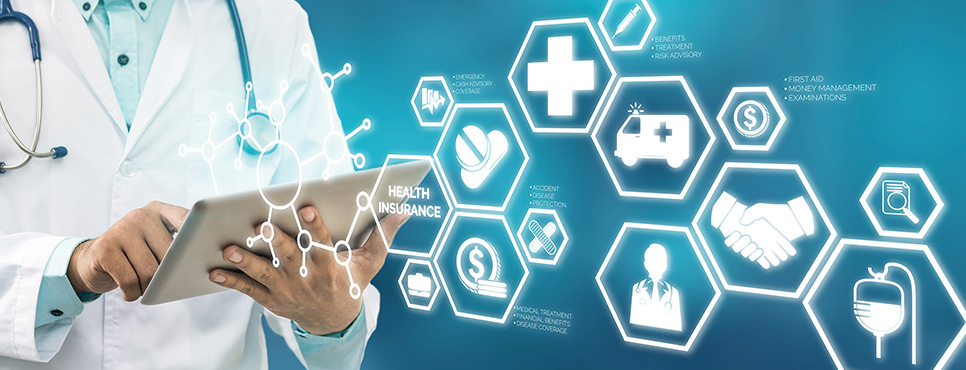Program
Thursday, January 9
Friday, January 10
- Plenary Session 1: Machine Learning in Precision Oncology
- Plenary Session 2: Databases and EHRs
- Plenary Session 3: Panel Discussion on Real-World Evidence Generation, Payment Models, and Endpoints
Saturday, January 11
- Plenary Session 4: Novel Drug Development Approaches / Drugging Difficult Targets
- Plenary Session 5: What Constitutes Adequate Screening?
- Plenary Session 6: Unique Clinical Trial Designs
Sunday, January 12
- Keynote Lectures
- Plenary Session 7: Panel Discussion on Perspectives from Biotech and the Finance Sector
- Plenary Session 8: MRD / Advanced Diagnostics
- Closing Remarks
Thursday, January 9
Welcome and Opening Keynote Lectures
6:30-8:30 p.m.
Welcome
Elaine R. Mardis, Nationwide Children’s Hospital, Columbus, Ohio
Keynote Address
Genomic-phenomic data linkages to accelerate discovery in oncology: Obstacles and opportunities
Deborah Schrag, Dana-Farber Cancer Institute, Boston, Massachusetts
Panel Discussion
David M. Hyman, Memorial Sloan Kettering Cancer Center, New York, New York
Elaine R. Mardis
Deborah Schrag
Lillian L. Siu, Princess Margaret Cancer Centre, Toronto, Ontario, Canada
Eliezer M. Van Allen, Dana-Farber Cancer Institute, Boston, Massachusetts
Opening Reception
8:15-10 p.m.
Friday, January 10
Continental Breakfast
7-8 a.m.
Plenary Session 1: Machine Learning in Precision Oncology
Session Chair: Lillian L. Siu, Princess Margaret Cancer Centre, Toronto, ON, Canada
8-9:45 a.m.
The Treehouse Childhood Cancer Initiative
David Haussler, University of California, Santa Cruz, California
Drug predictive computational evaluations
Benjamin Haibe-Kains, Princess Margaret Cancer Centre, Toronto, ON, Canada
Clinical challenges in oncologic imaging: AI support from image analysis to integrated diagnostics
Evis Sala, University of Cambridge, Cambridge, United Kingdom
Panel Discussion
Break
9:45-10 a.m.
Plenary Session 2: Databases and EHRs
Session Chair: Eliezer M. Van Allen, Dana-Farber Cancer Institute, Boston, Massachusetts
10-11:45 a.m.
EHR-derived data platforms to advance precision medicine
Neal J. Meropol, Flatiron Health, New York, New York
Count me in: Partnering with patients to accelerate the pace of discoveries
Corrie Painter, Broad Institute of Harvard and MIT / CountMeIn, Cambridge, Massachusetts
Let’s make it easier to participate in research: A patient’s perspective
Liz Salmi, OpenNotes / Beth Israel Deaconess Medical Center, Boston, Massachusetts
Panel Discussion
Poster Session A / Lunch (provided)
12-2:45 p.m.
Plenary Session 3: Panel Discussion on Real-World Evidence Generation, Payment Models, and Endpoints
Session Moderator: Elaine R. Mardis, Nationwide Children’s Hospital, Columbus, Ohio
3-4:45 p.m.
Changing the care model
Lee Newcomer, Lee N. Newcomer Consulting, Wayzata, Minnesota
Building data and knowledge management systems to support precision medicine
Monica M. Bertagnolli, Brigham and Women’s Hospital, Boston, Massachusetts
Pillars of “personalized health care”
Levi A. Garraway, Genentech, South San Francisco, California
A platform approach to regulatory-grade RWE and outcomes validation
Jonathan Hirsch, Syapse, San Francisco, California
Panel Discussion
Dinner on Own / Free Time
4:45 p.m.
Saturday, January 11
Continental Breakfast
7-8 a.m.
Plenary Session 4: Novel Drug Development Approaches / Drugging Difficult Targets
Session Chair: David M. Hyman, Memorial Sloan Kettering Cancer Center, New York, New York
8-9:45 a.m.
Acceleration of drug development through innovative trial design and strategy
José Baselga, AstraZeneca, Gaithersburg, Maryland
Title to be announced
Jeffrey A. Engelman, Novartis, Cambridge, Massachusetts
Challenging therapeutic targets: Categories and lessons learned
Levi A. Garraway, Genentech, South San Francisco, California
Panel Discussion
Break
9:45-10 a.m.
Plenary Session 5: What Constitutes Adequate Screening?
Session Chair: Elaine R. Mardis, Nationwide Children’s Hospital, Columbus, Ohio
10-11:45 a.m.
Discovery revisited: Challenges and opportunities in an age of clinical sequencing in oncology
Barry S. Taylor, Memorial Sloan Kettering Cancer Center, New York, New York
Longitudinal single cell DNA sequencing to reveal rare cancer cell populations and genome-phenome states in tumors
Sohrab Shah, Memorial Sloan Kettering Cancer Center, New York, New York
Biomarkers and translational oncology in immuno-oncology
Alexandra Snyder, Merck & Co., Rahway, New Jersey
Panel Discussion
Lunch (Provided) / Free Time
12-2 p.m.
Plenary Session 6: Unique Clinical Trial Designs
Session Chair: Lillian L. Siu, Princess Margaret Cancer Centre, Toronto, ON, Canada
2:15-4 p.m.
Title to be announced
J. Carl Barrett, AstraZeneca, Waltham, Massachusetts
The Drug Rediscovery protocol: Getting the most out of approved drugs
Emile E. Voest, Netherlands Cancer Institute, Amsterdam, Netherlands
Title to be announced
David M. Hyman, Memorial Sloan Kettering Cancer Center, New York, New York
Panel Discussion
Dinner on Own / Free Time
4 p.m.
Sunday, January 12
Continental Breakfast
7:30-8:30 a.m.
Keynote Lecture
Session Chair: Eliezer M. Van Allen, Dana-Farber Cancer Institute, Boston, Massachusetts
8:30-9:10 a.m.
Large-scale science in the private sector: The Story of Grail and the early detection of cancer
Richard D. Klausner, Lyell Immunopharma, South San Francisco, California
Plenary Session 7: Panel Discussion on Perspectives from Biotech and the Finance Sector
Moderator: J. Carl Barrett, AstraZeneca, Waltham, Massachusetts, and David M. Hyman, Memorial Sloan Kettering Cancer Center, New York, New York
9:15-10:30 a.m.
Philip Dreyfuss, Farallon Capital, San Francisco, California
Thomas G. Roberts, Farallon Capital, San Francisco, California
James Tanenbaum, Foresite Capital, San Francisco, California
Alicia Zhou, Color Genomics, Burlingame, California
Break
10:30-10:45 a.m.
Plenary Session 8: MRD / Advanced Diagnostics
10:45 a.m.-12:30 p.m.
Dissecting the biological and clinical underpinnings of immunotherapy resistance in the real world
Eliezer M. Van Allen, Dana-Farber Cancer Institute, Boston, Massachusetts
Circulating tumor DNA as predictive biomarkers for response and toxicity with immunotherapy
Lillian L. Siu, Princess Margaret Cancer Centre, Toronto, ON, Canada
Circulating tumor DNA analysis for personalized cancer monitoring and detection
Maximilian Diehn, Stanford University, Stanford, California
Panel Discussion
